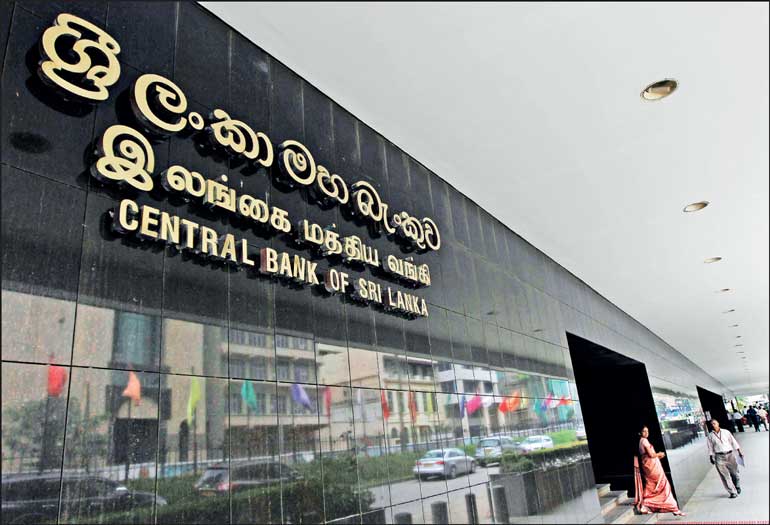Friday Feb 20, 2026
Friday Feb 20, 2026
Thursday, 19 January 2023 00:00 - - {{hitsCtrl.values.hits}}

The Central Bank Executive Officers Union (CBEOU) has expressed strong displeasure and objection against the new tax regime warning it will cause severe damage on multiple fronts.
It has made written representations to Treasury Secretary Mahinda Siriwardena with a copy to CBSL Governor Dr. Nandalal Weerasinghe.
The letter signed by CBEOU President D.J. Perera and General Secretary M.N.P. Jayaweera, as well as members, had been sent to officials last week but was released to the media yesterday.
“We express our strong displeasure regarding this extremely burdensome tax policy, which is imposed without a proper analysis, by signing this petition as the executive officers of the apex financial institution in the country and we expect that this tax policy will be reviewed sooner than later, and appropriate amendments will be made without a further due,” the letter said.
CBEOU said the intention of the letter was to express its objection on amended taxes w.e.f. 01.01.2023, where serious concerns have arisen among the wider society.
It acknowledged the fact that the Government budget deficit should be properly managed for macro-economic stability while enhancing Government revenue. “However, our opinion is that the increase in taxes should be bearable to a multitude of taxpayers of an economy who are already affected by the economic downturn.”
Further, higher attention should be paid towards suitable medium to long-term policies to rectify the anomalies that have been created throughout decades in the basic structures of the economy. However, if such consideration is not paid, the existing economic and social crisis will escalate to an unprecedented level.
“Although we are experiencing dire consequences of managing the economy by ignoring the relevant professional opinions during the past, neither an investigation nor a forensic audit has yet been initiated on the parties who are directly responsible for the faulty decisions. This indicates the nature of minimum responsibility and accountability prevailing in the country towards managing the economy,” it observed.
As per the letter, following are the CBEOU observations regarding the new tax amendments.
1. Tax-free income threshold in 2017 was Rs. 1.2 million per annum and thereafter, the tax rates increased gradually from 4% to 24% for each increasing Rs. 600,000.00 of income. When compared to 20 17, the official inflation has increased closer to 100% and yet the tax-free income threshold still remains at Rs. 1.2 million while the tax rates have adjusted starting from 6% to 36% for each Rs. 500,000.00 of income
2. It is very clear from the official wage indices that the salaries of many employees have not risen close to or on par with the prevailing high inflation and due to this, there is a severe deterioration in their standard of living (purchasing power) at present. In this background, having to pay several times the amount of tax that they are currently paying is extremely oppressive and devastating
3. It is no secret that young and middle-aged professionals in almost all fields are already leaving the country. Brain drain is bound to intensify through oppressive tax hikes. This will have a severe negative impact on the productivity of the economy, and it will be inevitable that there will be a serious shortage of professionals in the country in the near future
4. Acceleration in the amount of non-performing loans in the financial sector in the face of severe pressure on disposable income will adversely affect the stability of the country's financial system
5. Although the economy has enhanced through the expansion of the domestic economy in the last few decades, the number of registered taxpayers (individuals and institutions) in the country have not increased simultaneously. Also, there are allegations that even some registered taxpayers do not pay taxes properly. Thus, if tax evaders are included in the direct tax system and the Government recovers the lost revenue through proper assessment of income, it can relieve the undue additional tax burden imposed on employees and institutions that are already paying taxes
6. As professionals we do not observe that there is a practicable scheme or mechanism in which, the high taxes collected, are passed on to the wider society by way of commensurate benefits
7. It is regrettable that although various parties, including the International Monetary Fund, have pointed out the need to reduce corruption through financial transparency, improving public financial management and introducing a strong anti-corruption legal framework, yet there is no motive to make them practical as similar to the case of raising taxes. In the end, it would be a severe injustice to the taxpayers to maintain and operate a relatively inefficient State mechanism by imposing extremely high taxes on the efficient sectors of the economy. It will help to maintain industrial peace in all sectors of the country if effective communication is maintained with the concerned professionals and other parties before implementation of such strict tax policies
“Moreover, we express our strong displeasure regarding this extremely burdensome tax policy, which is imposed without a proper analysis, by signing this petition as the executive officers of the apex financial institution in the country and we expect that this tax policy will be reviewed sooner than later, and appropriate amendments will be made without a further due.”